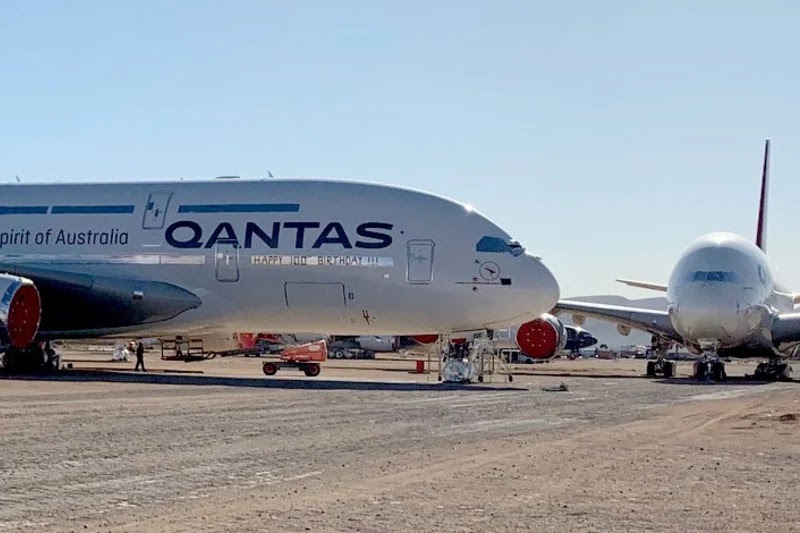The Airbus A380, the world's largest and heaviest passenger aircraft, necessitated ample storage space and dry, arid conditions, making deserts the ideal locations. Historically, aircraft boneyards stored retired and damaged planes, but the pandemic marked the first time so many planes were stored simultaneously in desert locations.
Recently, the last Qantas Airbus A380 returned from nearly 1,000 days in the Victorville boneyard in California's Mojave Desert. Qantas, Australia's only long-haul carrier during the pandemic, does not anticipate international flying to return to pre-pandemic levels until at least 2024. This is partly due to the challenges of returning such large aircraft to service, which involves 4,500 hours of labor and the replacement of numerous parts, including wheels, brakes, and internal furnishings.
For Qantas engineers, reviving an A380 took two months of work in the Mojave Desert's harsh conditions. The process involved unwrapping the aircraft and conducting a series of tests on various systems, including fuel, nitrogen, and oxygen. After leaving the desert, the planes underwent an additional 1,000 hours of maintenance testing before returning to service.
As lockdowns lifted, airlines faced challenges in meeting the demands of millions of eager travelers. Issues included industry-wide staff shortages, border control confusion, COVID testing and vaccination requirements, high airfares, and supply chain shortages that delayed aircraft return to service. Qantas faced criticism for its slipping standards in 2022, but it now has seven A380s back in service, with three more expected to return next year after extensive maintenance and cabin reconfiguration.
However, Qantas faces additional challenges with its aging A380 fleet and no announced replacement plan. With an average fleet age of 15.4 years, Qantas is expected to receive about 80 new aircraft over the next four years to replace parts of its domestic and international fleet. Despite the A380's lack of fuel efficiency, Qantas is working to achieve carbon neutrality by 2050 by investing in the sustainable aviation fuel industry. Long-haul flights will rely on these revived wide-body aircraft until at least the end of the decade.

